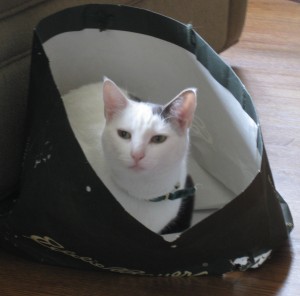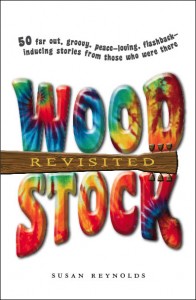Is there anything more potent, more magical, more surreal than a map?
Some may think maps mundane, the stuff of Google, soulless grids charting featureless terrain, mere means to an end. But a good map can do so much more than just get you where you want to go. It can tell you what to look for, what to avoid, where the hidden treasure lies, where the roads end. And in a work of fiction a well-drawn map can open a whole new world in your mind.
Of course, not every genre lends itself to mapping. But none has done more to chart the unknown than fantasy. I recently finished reading “The Elfstones of Shannara,” a 500-plus-page journey into the misty domain of writer Terry Brooks, whose bestselling books have won legions of fans in the sword and sorcery camp.
I must confess that although I’d seen Brooks’s works around for years, until recently I’d never summoned the will to commit to reading one, due to an attitude I acquired while reading “The Hobbit.” This was back in the day when Tolkien worship was white hot and fresh on college campuses, and I dutifully tried to feel the passion. But I found it a trial, slogging irritably through the page after page of repetitive scenery descriptions, waiting in vain for the appearance of a single admirable female character. Seriously. Swept away I was not.
Of course, in principle I enjoy the classic fantasy tropes of an epic journey, a battle against overwhelming odds, and magical weapons to ensure victory in the struggle between good and evil. But really, all those dwarf songs? Hardly karaoke material.
However, map-wise “Lord of The Rings” set a new standard for those of us who like to boldly read where no one has read before. And Terry Brooks has a firm grasp of the map element. Also, to his credit, he crafts some engaging female characters, so that, on the whole, I think I prefer his Shannara to Tolkien’s Middle Earth.
But while maps enrich works of fiction ranging from the sunny innocence of Winnie the Pooh and his 100 Acre Wood to the dark twists of Neil Gaiman’s alternative London underground in “Neverwhere,” the power of maps transcends fiction. In fiction maps often lead to treasure or talismans of power. In real life, a good map is a treasure in itself.
So much of life is uncharted. The perilous path of parenthood, for instance, can be a twisting, gut-wrenching trial no matter how many guidebooks you read. Jane Hamilton’s brilliant, heartbreaking “A Map of the World” takes the reader through a nightmare of parental fears, but the author leads us out into the light with a flickering torch of hope held high. Though her work is nothing like escapist fantasy, it offers a similar redemptive resolution by suggesting that no matter how carefully you work to guard and protect your children, things happen over which you have no control.
Ultimately, there are no maps for parenthood. Every child is a whole new world, one that you may spend your life discovering. As Dr. Seuss noted, “Oh the places you’ll go!” We went to Los Angeles recently, on a sort of post-graduate parenting mission. Our daughter was running in her first marathon and, knowing that running 26 miles would be a challenge, we wanted to cheer her on. What we didn’t anticipate was the challenge of driving in downtown LA on a major holiday during the marathon when countless streets were closed and barricaded. Luckily, I had a map. Not a bad map, but sadly lacking in the kind of useful tips that set apart great maps from the mediocre. Your great maps offer helpful bits of advice such as, “Here be dragons.” In our case, one that warned, “Here be traffick barriers” would have been nice.
As we waited out the hours while the marathon progressed, our quest was more modest than that of Frodo or Wil Ohmsford. We simply wanted to find an open coffee shop, a public restroom, a route to the finish line of the race. Unfortunately, I was hampered by the fact that we had parked in an underground lot, and the overcast early morning skies offered no sunshine to help me get oriented. Normally I feel fairly confident about my sense of direction, but no matter how long I stared at the map I couldn’t figure out which way was up. My head was spinning from lack of sleep and coffee. What I needed was a magic ring, or, failing that, an enchanted sword, but there’s rarely one of those around when you need it.
Unless you’ve got a volume by Terry Brooks in your backpack. In which case, no worries. You can fight your way out of the blackest pit of underground parking and climb into higher realms of glory. Or at least find a place to grab some lunch.


 , 50 Far Out, Groovy, Peace-Loving, Flashback-Inducing Stories From Those Who Were There by Susan Reynolds, which will be released this summer, just in time for all the nostalgic hoopla. Love that hoopla.
, 50 Far Out, Groovy, Peace-Loving, Flashback-Inducing Stories From Those Who Were There by Susan Reynolds, which will be released this summer, just in time for all the nostalgic hoopla. Love that hoopla. And then the moment passes, and we go back to our spendthrift ways, shopping for stuff we don’t need, and eventually tossing most of it into landfills buried like ugly secrets in every part of this beautiful nation.
And then the moment passes, and we go back to our spendthrift ways, shopping for stuff we don’t need, and eventually tossing most of it into landfills buried like ugly secrets in every part of this beautiful nation.